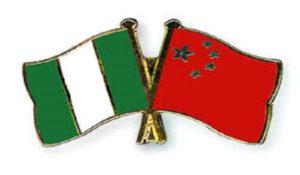
Tag: policy
Nigeria’s Federal Executive Council (FEC) Approves Policies, Bill & Strategies on Water Resources
The Federal Executive Council (FEC) approved the following documents:
1. National Water Policy (2016 – 2030), which seeks to comprehensively provide strategies that will improve management and delivery of water resources in Nigeria.
2. National Water Resources Bill, which seeks to consolidate all existing laws – the Water Resources Act, River Basin Development Authorities Act, National Water Resources Institutes Act, Nigeria Hydrological Services Act, etc – into a single piece of legislation that conforms to international standards. The Bill will also help clarify tensions relating to other Water-related laws under the purview of the Ministries of Environment, Mining, Agriculture, etc, and ultimately make it easier for the private sector to step in and invest in water supply schemes across Nigeria.
3. New Irrigation and Drainage Policy, which seeks to improve irrigation infrastructure and irrigation management in Nigeria.
Takeaways:
– Nigeria has 340 billion cubic meters of Surface Water and 92 billion cubic meters of Ground Water
– Nigeria has 3.1m hectares of potentially irrigable. Only 130,000 ha developed formally; and only 70,000 ha in actual use
– The Federal Ministry of Water resources has catalogued 36 Greenfield Irrigation Sites for Potential Investors. The sites range in size from 20 hectares to 125,000 hectares, amounting to a total of 388,000 hectares. Details in due course
Policy source: Aso Villa Newsletter
Nigeria-Germany Cooperation
Minister of Budget and National Planning, Udoma Udo Udoma addressed a German delegation led by that country’s Ambassador to Nigeria, Mr Dietmar Kreusel, at the Nigeria-Germany Consultations Meeting on Development Cooperation in Abuja.
Udoma told the delegation that Nigeria will welcome the support of their home country, particularly in the area of technical support and expertise, to drive small and medium scale industries and aid manufacture of quality products within the country.
Minister Udoma said, “We are determined, as a government, to diversify the economy as a whole. When you look at the breakdown elements of the GDP of Nigeria, crude oil and the petroleum sector account for less than 10% of DGP, so it ought not account, as it currently does, for about 95% of our foreign currency earnings; and that is what we have to work upon – to diversify our sources of government revenue, and we are working hard at it”.
He said government is putting much emphasis on agriculture in the interim because it is capable of yielding quick results but long term focus is also on developing the solid minerals base, looking at light manufacturing and developing Export Processing Zones, among others. “And we will welcome German companies to come and invest. We are looking for investments, investments that will benefit both the investors and Nigeria; and create jobs.”
The Minister noted that the German government is also supporting Nigeria in the Save School Initiative and the agricultural sector, technical and youth development, the Nigeria Energy Support Programme, Sustainable Small Holder Agro-businesses among others. He also noted the Euro 24.9 million support for the Pro-poor Growth and Employment Promotion as well as the Euro 200 million credit support agreed for the Development Bank of Nigeria.
Policy source: Aso Villa Newsletter